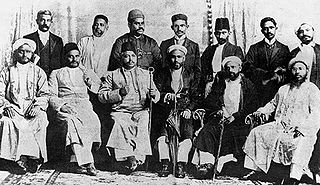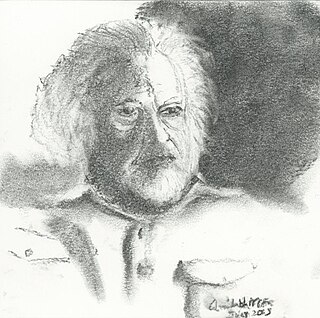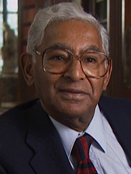
Fatima Meer was a South African writer, academic, screenwriter, and prominent anti-apartheid activist.

Ahmed Mohamed Kathrada OMSG, sometimes known by the nickname "Kathy", was a South African politician and anti-apartheid activist.

The Treason Trial was a trial in Johannesburg in which 156 people, including Nelson Mandela, were arrested in a raid and accused of treason in South Africa in 1956.
Yusuf Mohamed Dadoo OMSG was a South African Communist and an anti-apartheid activist. During his life, he was chair of both the South African Indian Congress and the South African Communist Party, as well as being a major proponent of co-operation between those organisations and the African National Congress. He was a leader of the Defiance Campaign and a defendant at the Treason Trial in 1956. His last days were spent in exile in London, where he is buried at Highgate Cemetery; a few metres away from the Tomb of Karl Marx.

The Natal Indian Congress (NIC) was a political organisation established in 1894 to fight discrimination against Indians in the Natal Colony, and later the Natal Province, of South Africa. Founded by Mahatma Gandhi, it later served an important role in opposing apartheid. It was the oldest affiliate of the South African Indian Congress.

Ismail Mahomed Ayob is a South African lawyer. Ayob practised law in South Africa and for much of his career the bulk of his work was with anti-apartheid cases. Ayob was involved in a much-publicised series of disputes with Nelson Mandela.
Gangathura Mohambry "Monty" Naicker was a South African anti-apartheid activist. He is best known for his tenure as president of the Natal Indian Congress (NIC) between 1945 and 1963. He also served as president of the South African Indian Congress.
The South African Indian Congress (SAIC) was an umbrella body founded in 1921 to coordinate between political organisations representing Indians in the various provinces of South Africa. Its members were the Natal Indian Congress (NIC), the Transvaal Indian Congress (TIC), and, initially, the Cape British Indian Council. It advocated non-violent resistance to discriminatory laws and in its formative years was strongly influenced by the NIC's founder, Mahatma Gandhi.
The Transvaal Indian Congress (TIC) was a political organisation established in 1903 to fight discrimination against Indians in the Transvaal Colony, and later the Transvaal Province, of South Africa. Founded in 1903 as the Transvaal British Indian Association, it was a member of the South African Indian Congress alongside its elder and larger sibling, the Natal Indian Congress. It fell dormant after the end of apartheid in 1994.

Moosa Moolla OLS was an Indian South African activist and diplomat. A member of the African National Congress, Moolla was arrested and eventually found not guilty in the 1956 Treason Trial. In 1961, he was arrested and tried for incitement at the time of the May 1961 stay-at-home protest. In May 1963, he was arrested under the 90-day law. On 11 August 1963, Moolla and others escaped prison by bribing a young guard. He later served as the ANC representative to Asia while living in exile in India. Following independence, he became the first South African ambassador to Iran.

Enuga Sreenivasulu Reddy, also known as E. S. Reddy, was an Indian-born diplomat at the United Nations who led the anti-apartheid efforts at the UN's Special Committee Against Apartheid and its Centre Against Apartheid. He also served as director of the UN Trust Fund for South Africa and the Educational and Training Programme for Southern Africa. During his time in these roles, he campaigned for economic boycott of the then Government of South Africa, advancing anti-apartheid actions including a combination of economic and social measures. He also lobbied for the release of the imprisoned leader Nelson Mandela.
Amina CachaliaOLB was a South African anti-Apartheid activist, women's rights activist, and politician. She was a longtime friend and ally of former President Nelson Mandela.
Cachalia is a surname of Indian origin and may refer to:

Ahmed Timol was an anti-apartheid activist in the underground South African Communist Party. He died at the age of 29 from injuries sustained when he fell from the top floor of John Vorster Square police station in Johannesburg. Police claimed, and an official inquest confirmed, that Timol had committed suicide by jumping out the window. The claim was widely disbelieved in anti-apartheid circles, and in the movement Timol's death became symbolic of the broader phenomenon of deaths in police custody, as well as of the abuses and dishonesty of the apartheid state.
Dr. Zainab Asvat was a South African anti-apartheid activist. Asvat was trained as a medical doctor, but was politically active most of her life.
Kholvad House, which includes Flat 13, is a Johannesburg, South Africa building and landmark known for its role in the South African struggle for civil rights. Its Flat 13 was the home of Robben Island prisoner Ahmed Kathrada for more than 16 years, including 1952 when he planned the Defiance Campaign, and Nelson Mandela used the home to see clients in 1960 when his law firm was shut down.

Vella Pillay was a South African international economist and a founding member of the British Anti-Apartheid Movement. He was a member of the South African Communist Party and coordinated the party's overseas activities from London when it was banned by the South African government. As a chairman of the editorial committee of Anti-Apartheid News, he wrote extensively on the South African economy under the apartheid regime.
Amina PahadOLS was a South African anti-apartheid activist. A member of the Transvaal Indian Congress, she rose to prominence for her role in passive resistance against the Asiatic Land Tenure and Indian Representation Act of 1946. She was also known as the matriarch of the Pahad family's politically active home in Johannesburg.
Ismail Chota Meer, sometimes spelled Ismael Meer, was a South African lawyer, writer, and anti-apartheid activist. He was the secretary of the Transvaal Indian Congress during the presidency of Yusuf Dadoo, and he later held leadership positions in the Natal Indian Congress and South African Indian Congress. After the end of apartheid, he represented the African National Congress in the KwaZulu-Natal Legislature from May 1994 until his death in May 2000.
Yusuf Mohamed Cachalia was a South African anti-apartheid activist. He was the secretary of the South African Indian Congress, in which capacity he played a central role in organising the 1952 Defiance Campaign.










